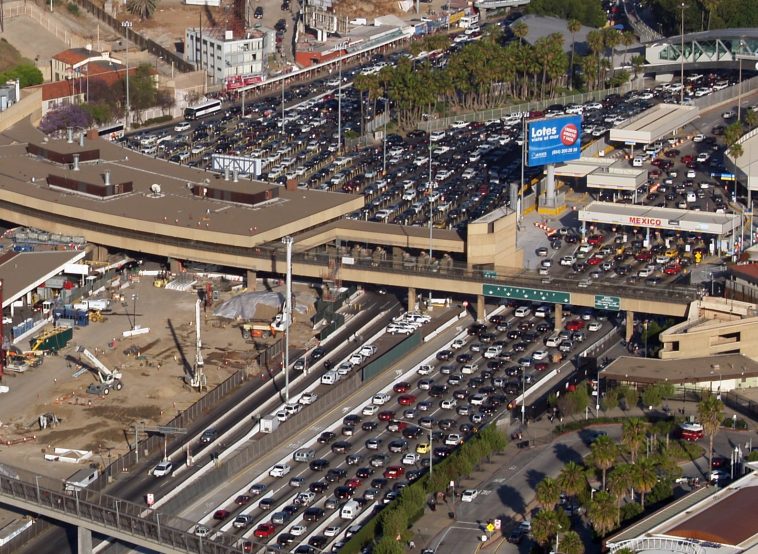There exists a spectrum of opinions among communities on how strongly they should collaborate with immigration authorities. Among them, the San Diego sheriff has been resolute in his stance to disregard any policy that compromises the rights of immigrants. This comes in light of a situation where many migrants find themselves in a post-release dilemma in San Diego, frequently awaiting a forthcoming judicial date after gaining initial release from the U.S. Customs and Border Protection.
The transition from one presidential administration to the next invariably prompts municipalities to reconsider their roles and responsibilities with federal agencies. This is particularly the case when the duties could potentially include extensive deportation operations. The southern border communities, including San Diego, have perceived a significant reduction in migrant traffic following changes made by the Biden administration, which increased the complexity of asylum applications.
Thousands of migrants who had previously crossed the border remain at the forefront of the socio-political dialogue. These folks, still without proper documentation, may have fanned out across the country, but their plight is far from forgotten. Many of these individuals continue to reside in San Diego and its surroundings, a fact that becomes particularly pertinent given the impending Trump era.
Incoming President-elect Donald J. Trump has made substantial promises regarding immigration policy, including executing widespread deportations. This plan has sparked dialogue and decision-making among municipal leaders in San Diego, with the central question focused on how best to safeguard those who, due to their immigration status, may find themselves at risk. The role of local law enforcement in collaborating with federal bodies is also a key concern.
These important yet challenging debates aren’t isolated to San Diego—quite the contrary. The echoes of President-elect Trump’s pledge to rein in immigration and beef up border security can be heard nationwide following his successful campaign to regain the presidency. San Diego County, however, finds itself at the epicenter of these vibrant discussions owing to its geographical proximity to the Mexican border.
In the recent past, San Diego County has caught the nation’s attention as a hotspot for crossings, momentarily surpassing migration levels in Texas and Arizona. Its location on the California-Mexico border inherently increases its susceptibility to such situations, providing a unique perspective to the ongoing immigration talk.
With Mr. Trump’s presidential win, San Diego County has intensified its commitment to support and uphold the rights of immigrants. Inspirational, too, is the move made by the San Diego County Board of Supervisors, who have taken significant steps to strengthen protections for migrants within their jurisdiction.
The board has mandated that federal agents should obtain a judicial warrant first before they plan to collect any undocumented immigrants from the locality’s detention facilities. This essentially means that the board has championed a substantial commitment towards maintaining the rights of migrants, irrespective of their immigration status.
Moreover, an additional progressive initiative from San Diego County’s leadership prohibits any investigative interviews by immigration officials inside their prisons. Such preemptive actions are a testament to the county’s committed stance and its heightened resolve to protect the rights of those within its boundaries.
Additional stratagems have been employed to strengthen the immigrant-friendly aura in the San Diego region. In a move tinged with respect for human rights, the county has expressly forbidden the usage of county resources for upholding immigration control. It’s indeed a crucial statement from the county’s governance, signifying an unwavering commitment to resist practices that could be perceived as discriminatory.
San Diego, with its unique experiences and demographic standing, has thus exemplified a forward-thinking approach towards addressing the multifaceted dynamics of immigration. Its resilience against possible adversity, driven by its cognizance of the dignity and rights of all individuals irrespective of their immigration status, stays at the center of its strategies.
The actions taken by the community are representative of a broader sentiment that harbours more inclusive, fair and protective measures for all people. These are not merely symbolic measures, but practical steps aimed at model community-building and law enforcement, inclusive of all irrespective of their documented status.
Truly, it is the collective ownership of communities like San Diego in addressing complex issues that reflects the spirit of a nation built by immigrants. With the promise of a more rigid immigration policy under the incoming Trump administration, such communities stand as a beacon of hope and resistance.
In the future, cities and communities across America will have to navigate these complexities and make difficult decisions about immigration cooperation. Their actions will not only impact the lives of many individuals but will also reshape the social fabric of America. Just as San Diego is leading by example, other communities should echo a similar commitment to protecting their diverse populations.


